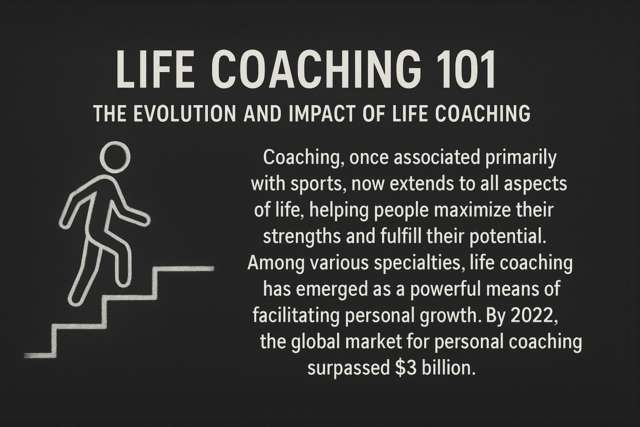Edit When You Are Done
This may seem pretty self-explanatory, but surprisingly many writers will try to edit a story before they are even done with the story. This is the wrong course of action for the simple reason that if you edit before you are done with the basic story, you may never finish that story. If you edit as you go, you will begin to feel as though the story does not have merit, you will start to doubt yourself and you will stop writing the book.
This is why it is important to only edit after you have completed the book. Surprisingly, this is a basic of editing that some writers choose to ignore and it costs them their book in the end. If you edit before you are done, the flow of thoughts you have for your book will be disrupted, and that is something you simply cannot do.
Edit the Hard Copy
Some editors prefer to edit from the monitor but if you have a long story, it can get confusing and tiring to stare at the monitor. Editing the manuscript in printed out form is best because you can make notes and put in details about your manuscript, which you may not be able to do with the computer if you are editing directly on it.
Verification is Important
When you go through your manuscript, ensure that you verify the names, figures, dates, and places in your book. One common mistake made by new writers is forgetting a character's name, even a main character, from the beginning to the end of the book.
For example, you may call a character John to start but over the course of 80,000 words, and referring to the character as him or he through much of the book, by the end you could be calling the character Jim. If a publisher sees a major inconsistency like this, they will choose not to publish your book, so verifying everything within the book is vitally important.
Edit for Guidelines
Publishers all have guidelines and if you do not follow their guidelines, they will not publish you. One of the reasons they have guidelines for you to use when you submit a manuscript to them is so that they can conform your book to what they publish. However, there is another reason for the guidelines; publisher want to see if you are writing in the form they require or just submitting your story all over the place.
There is a story from the 1980s about a band that would demand that all the brown M&Ms be removed from the bowl of M&Ms. They did not do this to be difficult, but did it to see if the contract they asked the promoter to sign was actually read. Well, publishers do the same thing and that is why editing to make sure that your manuscript conforms to guidelines is important. Some things that publishers will ask that you will have to edit for are as follows.
- Font Type.
- Line spacing.
- Font Size.
- Header and Footer.
- Word Count.
- Cover Page.
Edit to Make the Manuscript Tight
If a book drags on and on, no one will finish it. If a book does not grab a reader's interest in the first few chapters, they will put it aside. Editing for tightness in your manuscript creates a book that is all substance, and no fluff. When you edit for tightness, you will do the following.
- Remove redundant words.
- Remove useless words.
- Put in words that are more dynamic and intense.
- Replace shorter sentences with longer sentences.
- Keep from using passive voice.
Editing Characters
When you edit, you also need to edit the characters. When you edit characters, you are looking to make your characters as follows.
- More believable.
- More easy to relate to.
- More challenging.
- More lovable or despicable, or immature or mature.
The first step is to take your manuscript and stick it in a drawer or somewhere that you cannot see it for a while. That's right; the first thing you do in the editing process is to hide the manuscript so you do not see it.
The second step is to find your manuscript after a month away from it. Now, with fresh eyes, you can look at your manuscript and begin to edit it. This first edit is going to be a light edit. You will do the spell check in this second step, and you will read through the manuscript to make sure you like how it reads. You also will do a find and replace on certain words in this edit.
The third step is to give the manuscript to a friend or family member to read over. Your friend or family member will be paying more attention to how the book reads than to how things are spelled or grammar problems that may exist within the book.
The fourth step in the editing process is to put in the changes that your friends and family have suggested (if they apply) and to do a medium-to-heavy edit. It is at this point that you go through to make sure that you like the story and if you are going to make major changes, now is the time. You will be able to use your own notes from the first edit and the notes from your friends and family. The story may change completely at this point but it can be worth it in the long run if you make your story better.
The fifth step in the editing process, following a medium-to-heavy edit, is to go through and do another light edit to make sure there are no new spellings or grammatical errors in the manuscript.
The sixth step in the editing process is to now read through the manuscript out loud. It may seem odd to read essentially an entire book out loud, but it can help you greatly because you will catch many things in your book when you read it this way. In particular, you may find that your dialogue does not translate well into actual talking and this is something that you can only find when you read your manuscript out loud. It takes more time, but it is well worth it.
The seventh step is to do another light edit and to verify that your characters, places, plot, and themes are all consistent throughout the book.
Tools for the Editing Process
These tools will be covered in more detail later, but here you will find a quick list of the things you need to edit your book.
- Post-it Notes.
- Highlighter.
- Red pen (spelling and grammar errors).
- Green pen (notes about plot, characters, theme, and others).
- Notepad.
You should never rush the editing process. You need to be patient when you are editing because this will make you more successful as a writer. Taking time and caring to craft something wonderful will be worth it in the end. If you rush something out, publishers will see it as lazy work and you will not be published.
The editing process is the difference between publication and obscurity.
What Publishers Want
Many writers will feel that they are editing for their publisher, rather than for themselves. It is natural for a writer to feel that what they have written is perfect and does not need to change, but like with so many things, this is not the case. As a writer, your writing is not perfect and you are not publishable until a publisher says you are.
Each publisher is going to want something different. Some publishers are looking for a clean and crisp manuscript that is free from errors, while others will be more concerned with how the manuscript reads. All of these can be fixed and improved with editing, therefore it's very important to edit before you send a manuscript to a publisher.
What publishers want:
- Publishers want you to do the editing for them. To prove this to you, a publisher will sometimes charge you for editing. This can be a lot of money for a starving writer, so it is best to do the editing for the publisher. If a publisher has to do the editing, it is wasted time and money on their part, even if you pay them to do it for you.
- Publishers want zero spelling errors. These days, with spell check, there is no excuse for spelling errors. If a publisher sees too many spelling errors on your manuscript, they will just throw it in the rejected pile. You can get away with a bit more concerning grammar errors but not much.
- Publishers want a story that makes sense. How does this tie into editing? If your story does not make sense, you have to edit and revise it so that the story does. If a publisher cannot understand your story, the reader will not be able to and for the publisher that means there is no reason for them to try and market you.
- Publishers want you to submit a book of a certain length. Most publishers do not want books that are less than 60,000 words; otherwise it is considered a novella. On that same note, publishers do not want books from new writers that are over 120,000 words. If you are Stephen King you can get away with it because you have a proven track record of success. New writers who write a large book are too risky because not everyone wants to read long books. As a result, when you are about to submit your book, you may have to edit out some things, or edit some things in, in order to make it the right length. The absolute base minimum for a book should be 35,000 words, and even here you will find a hard time getting your book published because it may be too short.
- Publishers want writers who are original, but not too original. If you are original, you can get published but if you are too original you may be too much of a risk. This means that you may be editing your book to make it more mainstream if you want to be a successful writer.
- Publishers want writers with their own voice. If you read through your book and find that you write exactly like the most popular author of the day, you may want to go through and edit the story in your own voice. Publishers do not want clones of popular authors, they want unique author voices, so edit in your own writing style.
- Publishers want writers who:
- Use words well.
- Understand spelling.
- Understand punctuation.
- Understand grammar.
- Who write easy to read prose.
Most importantly, publishers want stories that they 'typically' publish. What we mean by this is that if you write a book about a vampire, and you submit it to a publisher who does not publish fantasy novels, you will not get published. They may like your work but will want you to get rid of the vampire angle. That means more editing. You can save yourself that extra editing by submitting your work to somewhere that will publish that type of genre.












